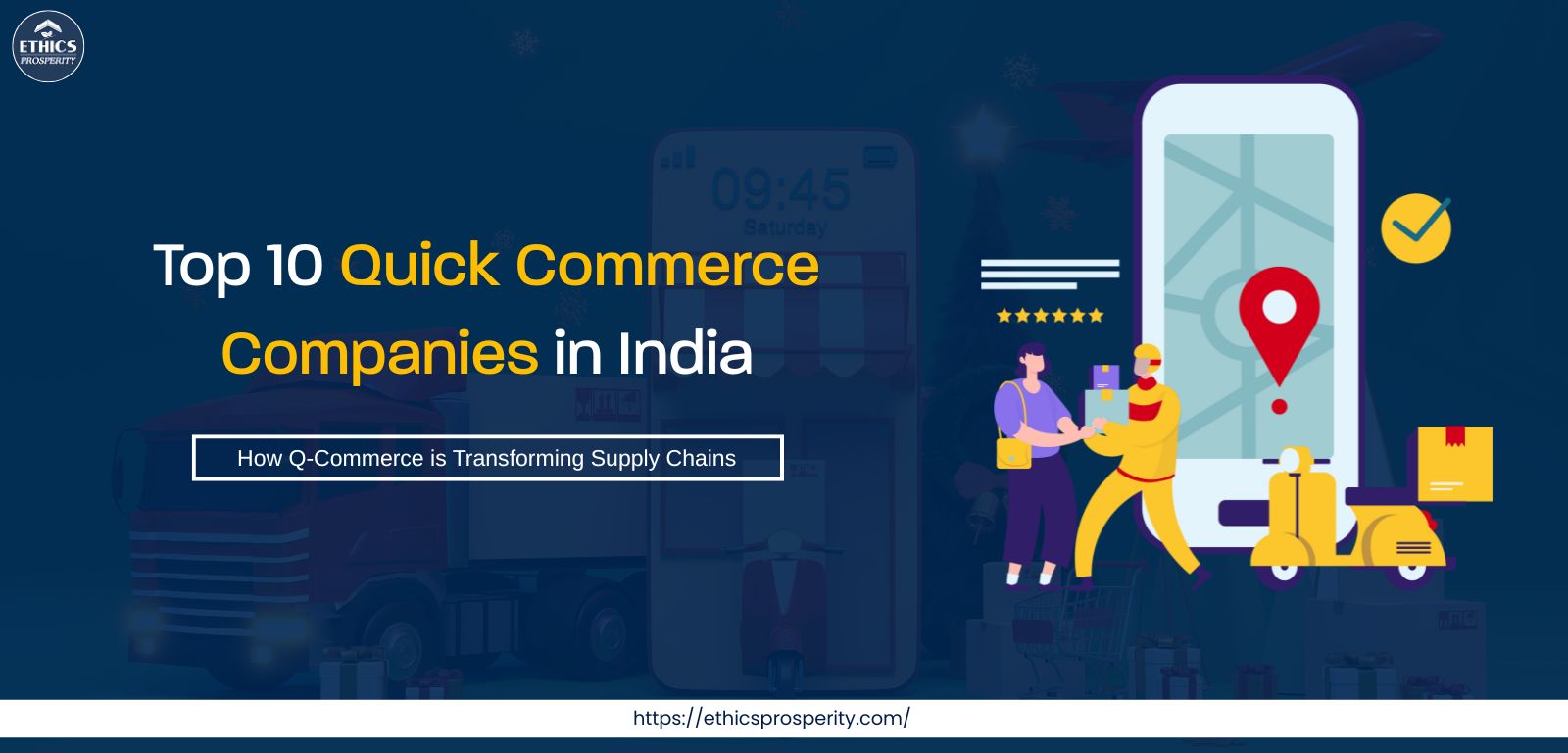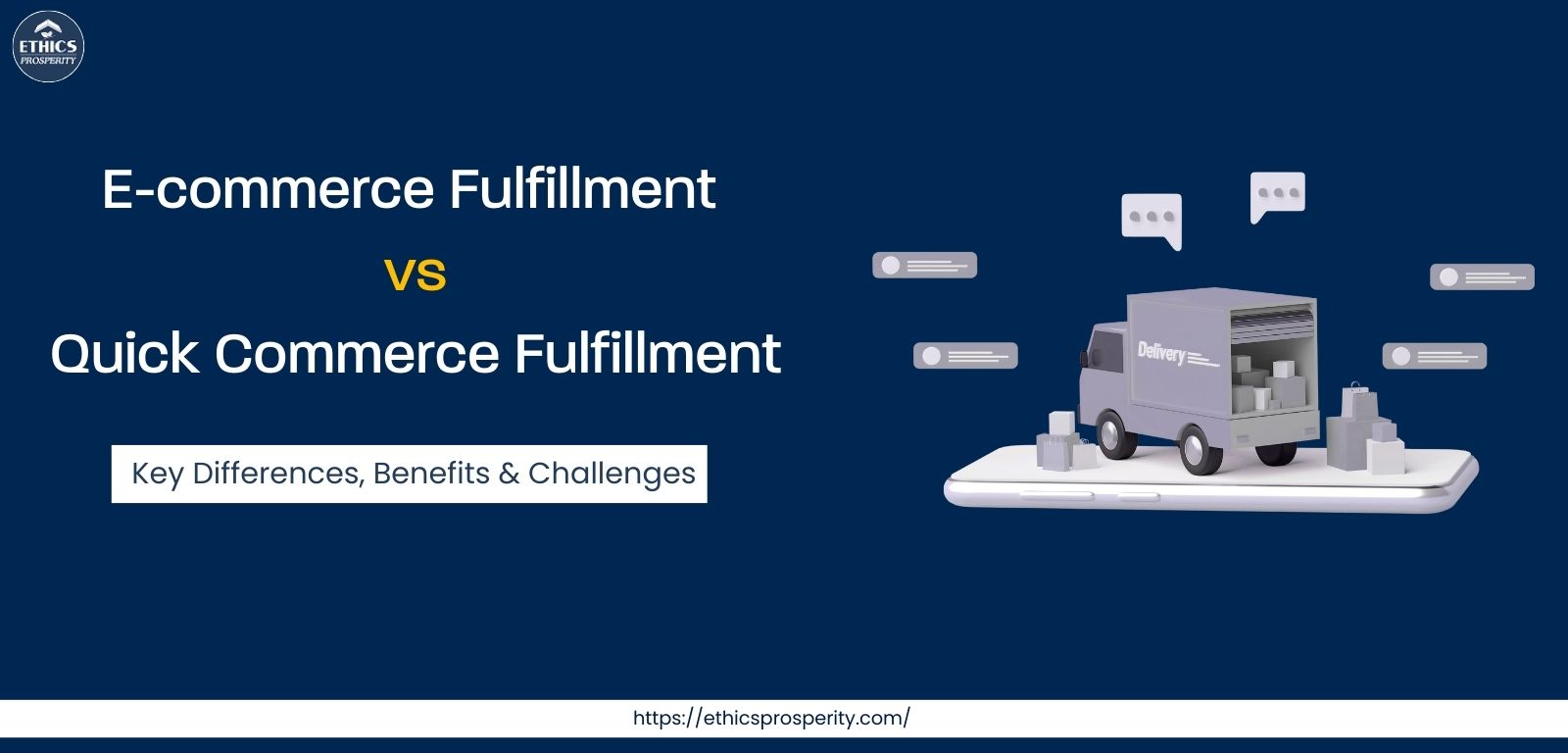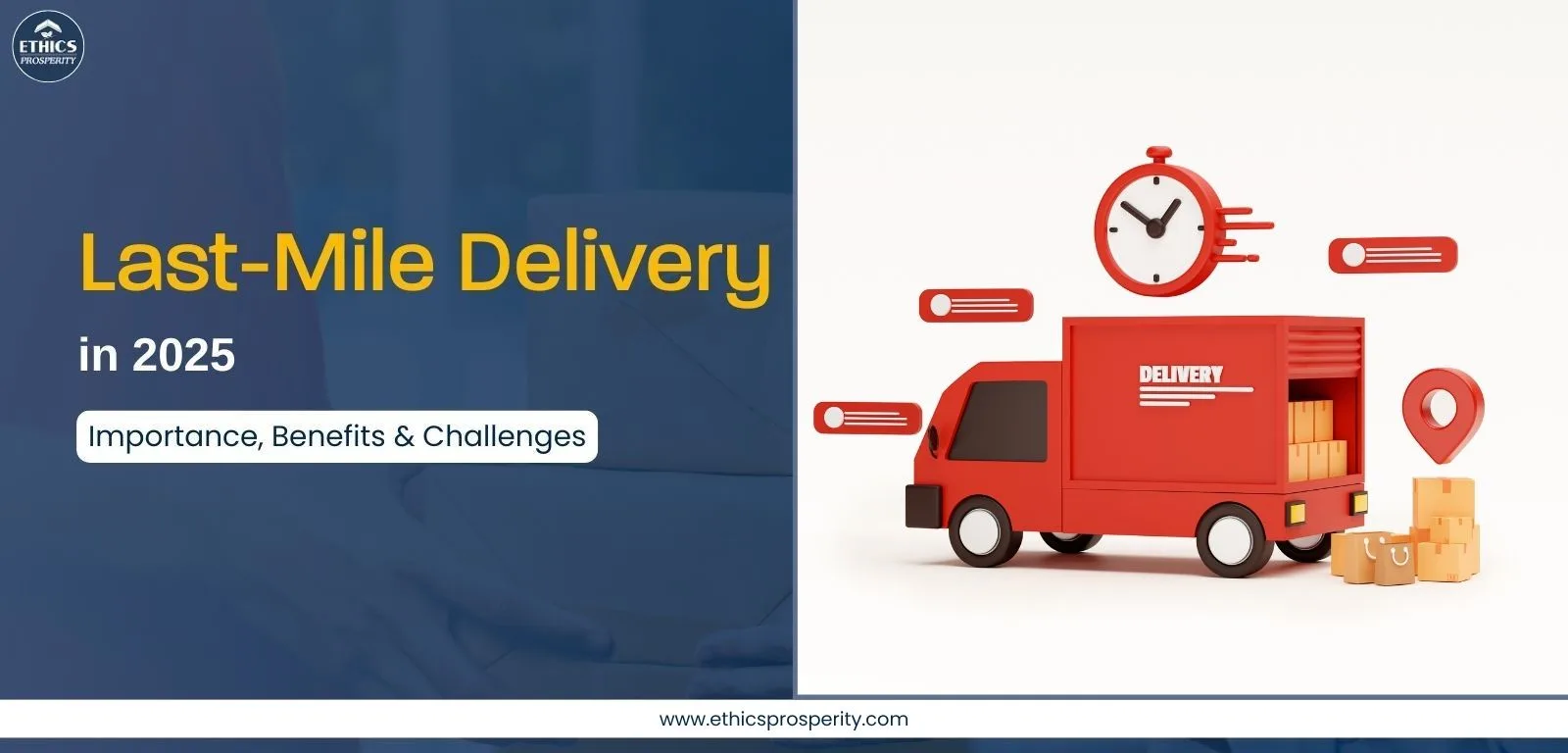The evolution of retail in India has been rapid, moving from traditional kirana stores to large-scale e-commerce and now to quick commerce (Q-commerce). This model, built on hyperlocal delivery networks and micro-fulfillment centers, ensures consumers receive groceries, medicines, and daily essentials within 10–30 minutes.
By 2025, Q-commerce India 2025 is projected to be worth billions, reshaping how supply chains operate. Backed by digital platforms, gig workers, and smart warehousing India strategies, Q-commerce has become an essential part of modern supply chain solutions in India.
What is Quick Commerce (Q-Commerce)?
Quick commerce combines the convenience of e-commerce fulfillment with the speed of hyperlocal delivery. Unlike traditional E-commerce vs Quick Commerce Fulfillment models, where deliveries take 1–7 days, Q-commerce thrives on instant gratification.
It is enabled by:
- Micro-fulfillment centers near demand hubs.
- AI-driven inventory and order management.
- Gig economy delivery fleets for last-mile logistics in India.
- Blockchain in smart warehousing for traceability.
How Does Quick Commerce Work?
The quick commerce supply chain depends on agility and technology:
- Inventory Placement – Only fast-moving SKUs (groceries, FMCG, personal care) are stocked in dark stores.
- Digital Ordering – Customers order via mobile apps with real-time stock visibility.
- Order Picking – Automated systems or staff pick items instantly.
- Last-Mile Delivery – Local riders cover 2–3 km radiuses in under 30 minutes.
- Returns Management – Handled via streamlined reverse supply chain processes.
This hyper-efficient model requires collaboration between supply chain companies in India, warehouse companies in India, and B2B logistics India providers.
Top 10 Quick Commerce Companies in India 2025 Updated
1. Blinkit (Owned by Zomato)
2. Zepto
3. Swiggy Instamart
4. BigBasket BB Now
5. Dunzo
6. JioMart Express
7. Flipkart Quick
8. Amazon Fresh (Pilot Q-Commerce Services)
9. Tata Neu Q-Commerce
10. M-Now (Myntra’s Q-Commerce arm)
1. Blinkit (Owned by Zomato)
Blinkit is one of the pioneers of India’s quick commerce supply chain, known for its 10–20 minute delivery promise. By leveraging dark stores and micro-fulfillment centers in urban clusters, Blinkit ensures fast replenishment. With Zomato’s backing, Blinkit is also integrating its operations with food delivery networks, making last-mile logistics India more efficient.
Supply Chain Strengths:
-
Dense urban dark store network.
-
AI-driven demand forecasting.
-
Strong gig workforce for Indian hyperlocal delivery.
2. Zepto
Zepto has quickly emerged as one of the fastest-growing quick commerce companies in India. Its 10-minute delivery model disrupted the market and set new consumer expectations. Zepto’s success lies in strategic warehouse placement and investment in supply chain technology for inventory planning.
Supply Chain Strengths:
-
Data-driven micro-fulfillment placement.
-
Focus on top-selling FMCG SKUs.
-
Integrated app for customer experience + backend supply chain.
3. Swiggy Instamart
A strong player in Q-commerce India 2025, Swiggy Instamart builds on its food delivery fleet to expand into groceries and daily essentials. Its ability to optimize last-mile logistics India gives it an edge in Tier-1 and Tier-2 cities.
Supply Chain Strengths:
-
Leverages food delivery fleet for essentials.
-
Bundled logistics and warehousing operations.
-
Tier-2 city penetration for growth.
4. BigBasket BB Now
As part of the Tata Group, BigBasket BB Now bridges e-commerce vs quick commerce fulfillment. It operates with larger fulfillment centers for e-commerce and hyperlocal dark stores for quick commerce.
Supply Chain Strengths:
-
Strong procurement network across India.
-
A combination of bulk e-commerce + quick delivery models.
-
Reliable cold chain infrastructure for perishables.
5. Dunzo
Dunzo offers Indian hyperlocal delivery not just for groceries, but also for medicines, parcels, and essentials. Known for flexibility, Dunzo partners with both consumers and small retailers, creating a B2B logistics India dimension.
Supply Chain Strengths:
-
Courier + grocery delivery model.
-
Decentralized partnerships with local shops.
-
On-demand last-mile logistics.
6. JioMart Express
Backed by Reliance, JioMart Express benefits from Reliance Retail’s massive sourcing and distribution infrastructure. Positioned to dominate Q-commerce India 2025, JioMart’s strategy is to connect local kirana stores with digital last-mile logistics India.
Supply Chain Strengths:
-
Pan-India distribution backbone.
-
B2B + B2C hybrid model.
-
Strong financial backing for expansion.
7. Flipkart Quick
Flipkart Quick is Walmart-backed Flipkart’s quick commerce initiative. By combining its robust e-commerce fulfillment infrastructure with hyperlocal hubs, Flipkart aims to compete aggressively in the quick commerce supply chain.
Supply Chain Strengths:
-
Blend of large e-commerce warehouses + micro-fulfillment centers.
-
Access to Flipkart’s existing delivery workforce.
-
Competitive pricing via bulk sourcing.
8. Amazon Fresh (Pilot Q-Commerce Services)
Amazon has begun piloting Q-commerce services in select metros, focusing on groceries and fresh produce. With its advanced blockchain in supply chain systems, Amazon emphasizes traceability and smart warehousing India practices.
Supply Chain Strengths:
-
Blockchain-enabled smart warehousing.
-
AI and IoT-driven delivery optimization.
-
Leverages Amazon’s massive global logistics network.
9. Tata Neu Q-Commerce
Part of Tata Neu’s super-app, this Q-commerce arm integrates multiple Tata brands to offer essentials, fashion, and lifestyle products. By leveraging custom warehousing and Tata’s existing warehouse companies in India, Tata Neu builds a hybrid model of convenience and reliability.
Supply Chain Strengths:
-
Integrated with Tata ecosystem (Croma, BigBasket, etc.).
-
Tech-enabled warehousing + delivery.
-
Strong B2B partnerships across industries.
10. M-Now (Myntra’s Q-Commerce)
Unlike other players, M-Now focuses on fashion and lifestyle quick commerce. By offering on-demand delivery of fashion essentials, Myntra is expanding the scope of quick commerce companies in India beyond groceries and FMCG.
Supply Chain Strengths:
-
Specialized micro-fulfillment for apparel.
-
Tech-driven demand planning.
-
Focus on niche categories in Q-commerce.
Rise of Quick Commerce in India
Q-commerce is growing rapidly because of:
- Urban Lifestyle Demands: Consumers want instant gratification.
- Digital Adoption: Smartphone penetration drives growth.
- Micro-fulfillment Centers: Reduce delivery times.
- Indian Hyperlocal Delivery: Strengthens access in Tier-1 and Tier-2 cities.
Role of Ethics Prosperity Pvt Ltd in Quick Commerce Success
As a leading player in supply chain solutions in India, Ethics Prosperity supports Q-commerce growth through:
- End-to-End Supply Chain Management services.
- Custom warehousing and cold chain for FMCG and pharma.
- Smart warehousing India with IoT and blockchain integration.
- Last-mile logistics in India support with optimized routing.
- Reverse supply chain expertise to handle returns efficiently.
Impact of Quick Commerce on B2B Supply Chains
Q-commerce is not just a consumer story—it has deep implications for B2B logistics in India.
- Shorter replenishment cycles pressure suppliers to be agile.
- Dynamic inventory planning with real-time demand forecasting.
- Blockchain in smart warehousing ensures compliance and traceability.
- SCM vs Logistics Insight: Logistics handles the last mile, but SCM integrates procurement, warehousing, and planning into the bigger picture.
Conclusion
The rise of quick commerce companies in India marks a turning point in retail supply chains. With Q-commerce India 2025 accelerating through last-mile logistics in India, micro-fulfillment centers, and Indian hyperlocal delivery models, the focus is on speed, technology, and sustainability.
The future belongs to businesses that embrace innovation, partner with capable supply chain companies in India, and invest in smart warehousing India for resilience. For stakeholders, the opportunity lies in building agile, tech-driven, and customer-centric supply chain ecosystems.


